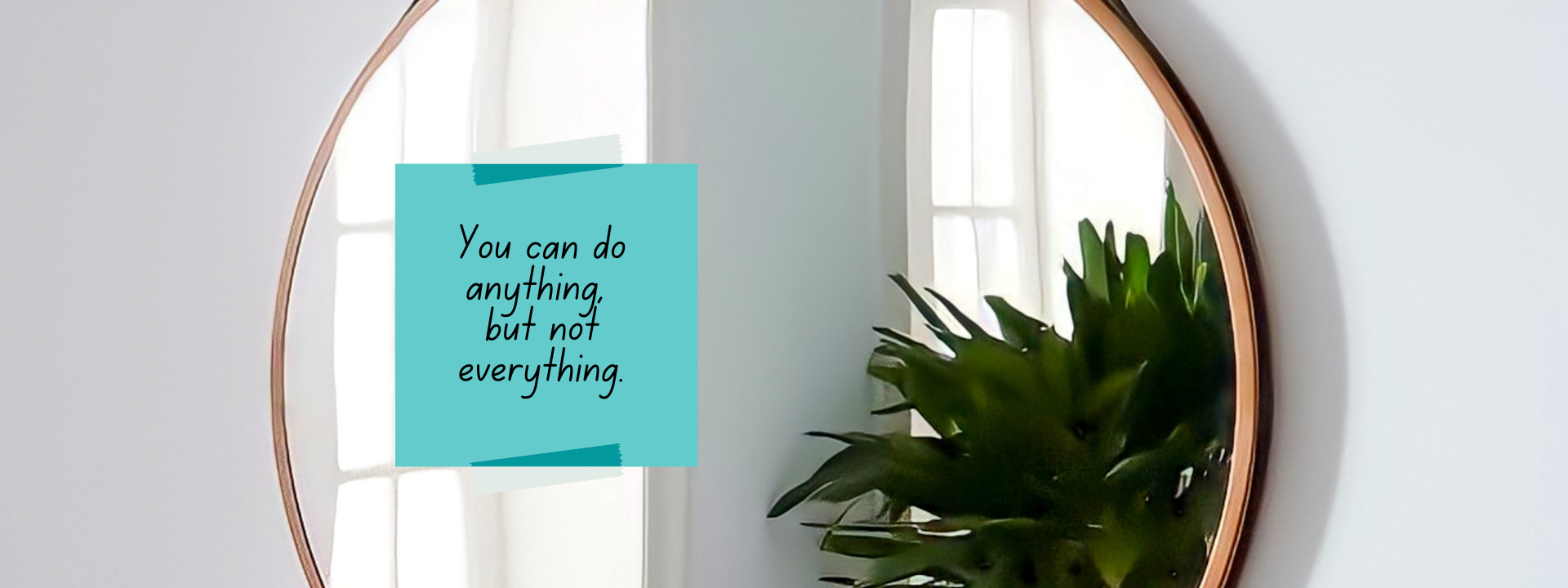How to Be More Present: The Exercise that Changed Everything for Us
WRITTEN BY NICOLE ENTZEROTH | 5 Minute Read
My grandpa used to say, “You can do anything, but not everything.” And although he meant this in the context of helping me determine my career path, I think it works when it comes to thinking about presence, too.
You can do anything, but not everything.
Since we live in a constant sea of information: our phones, social media, podcasts, the news, the internet, yada yada yada, we are, for a lack of better words, busy AF. This overload of information and our packed schedules is the perfect storm for making presence much trickier than it used to be. So, think about what my grandpa said: You can do anything, but not everything.
Translation: You can do one thing at a time really well–using the magic that only you possess–but you can’t do three other things really well at the same time. How can you do this with an overload of information at your fingertips and a schedule that pokes at you like a child trying to get your attention?
Here’s how.
Set a timer for one minute. All you have to do is stare at yourself in the mirror for the entire 60 seconds. Really take a good look. Most of the time when we look at ourselves in mirrors we’re focused on fixing part of our appearance, not checking in with ourselves, appreciating how we’re showing up today, and noticing all of the details that make us, us. This will feel extremely awkward, and that’s the point.
Once the timer’s up, do this.
In round two, set a timer for one minute again, still facing yourself in the mirror. But this time, give yourself a simple task like counting the lines on the ceiling. This will likely feel less awkward and more comfortable than round one. After the timer’s up in round two, take out your journal or piece of paper and answer this question without overthinking it: How can you be fully present in your life just like you were when you were counting in round two?
It probably won’t involve you counting ceiling lines during your next one-on-one convo, but it might involve focusing on the words someone is saying rather than nodding your head and saying “mmhmm” as you scroll through Insta. When you think about focusing on the words someone says like counting the ceiling tiles, you frame presence as a privilege rather than a chore. You get to be present. You get to find out. You get to connect with the person (or place, experience, situation) in front of you on a deeper level than you ever have before.
Next, answer this question.
Still in your journal or on a piece of paper, write a response to this question: Even when being present gets awkward like it was in round one, how am I going to keep at it? Not every conversation, meeting, task, or experience is going to be as exciting as a Lizzo concert, and this we both know. So - when staring at yourself for one minute without any distractions got uncomfortable, what did you do to stay present? Did you think about the details on your face? Your hair? Your expression? This is our favorite trick: when presence gets boring or when everyone else around you starts to pull out their phones, what details can you make a point to notice that will help you learn something new or come in handy later?
Paying attention to details enriches our lives.
When you think about the last conversation you had, it most likely involved some storytelling with specific details that the person wouldn’t have been able to share if they weren’t fully present in that moment: Omg last night I saw the cutest thing outside. There was a dog with a St. Patrick’s Day bandana on and it had green toenail polish on. When I asked its owner if I could pet it they smiled at me like I’d just announced they won the lottery. When you make a point to notice the details because you stayed present in the moment instead of grabbing your phone to take yourself out of the moment, you’ll have more specifics to enrich your conversations, and in turn, enrich your life.
To recap:
If you remember anything from this post, remember this:
You can do anything, but not everything.
Stare at yourself in the mirror for one minute to train your mind to find the details in any given situation in real life, even when it gets awkward or no one else is doing it.
Give yourself a task for one minute to train your mind to know that presence is a privilege, not a chore. And you can give yourself mini challenges like focusing on the words someone says or naming all the colors you see.
Discover your Wellness Avatar and reconnect with your Inner Child with our FREE Wellness Workbook!
ABOUT NICOLE
Nicole Entzeroth is a graduate from Loyola University Chicago, where she completed a double major in the English Honors Program and Economics, and also a minor in Psychology. Through internships in marketing & communications, research, and two years of teaching in the St. Louis Public School district as a Teach for America corps member, she is experienced in relationship building, facilitation, instructional design, and creative storytelling.
At improve it!, she is the Client Experience Associate and focuses on bringing ideas to life to build and maintain client relationships.


